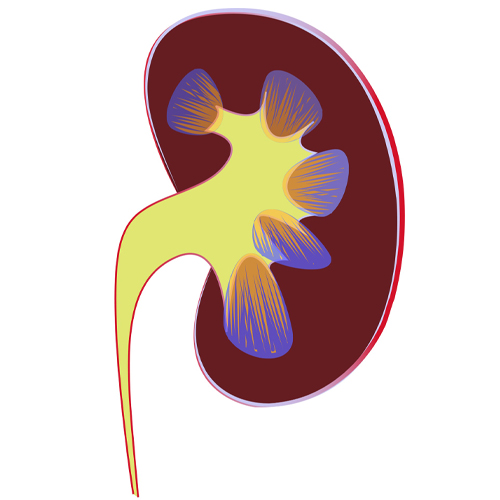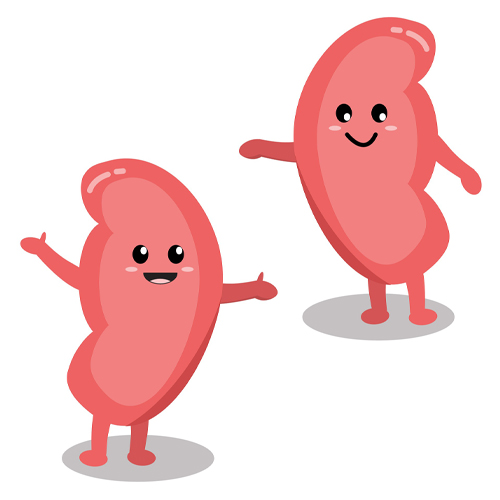Forgive me, it’s my kidney!
I’ve had a few patients come in with kidney disease recently and so here’s some information on this topic that I bet you don’t know much about!
What do the Kidneys do?

Each of your two kidneys acts as a screen, filtering excess water, sodium, toxins, and other waste products out of the blood by making a substance called urine. Blood runs on one side of the kidney “screen,” while a collecting system for urine, similar to a sink and the pipe that runs out beneath it, is on the other side. The kidneys also produce hormones which help to regulate blood pressure, red blood cell production (see Noreta’s last blog post), and vitamin D levels. The kidneys filter our entire volume of blood 30-40 times a day.
Here is a great 30 second video from the Mayo Clinic to show how the kidneys work. Also, contrary to popular belief, the kidneys do not often cause pain when they are diseased. They CAN cause pain when they are enlarged, which happens when urine backs up into them from kidney stones (see below), infections, cysts, etc.
What can decrease the function of the kidneys?
The pressure at which the blood is flowing across the kidney “screen” can have a big effect. Too much pressure (as in high blood pressure), and larger holes can start to be punched in that screen. Those larger holes start to let things through into the urine that should stay in the blood, like proteins. Other common disease processes that can decrease kidney function are diabetes (the sticky, sugary blood clogs up the blood vessels in the kidneys), and gout (gout crystals can also plug up the kidneys). Some autoimmune diseases also affect the kidneys.
Do kidney stones cause problems with kidney function?
Indirectly. Stones form on the urine side of the screen, in the collecting system, but if the stone gets stuck in the right place and urine starts to back up (instead of draining into the bladder), then that can eventually affect kidney function. An enlarged prostate, which squeezes on the urethra, can also cause urine to back up and damage the kidneys as well.
Can kidney disease be reversed?
It depends on the cause and how long the kidneys have been damaged. There are kidney issues that are acute (new and can be corrected), and chronic (have been going on for a long time). Kidney function usually recovers after a kidney stone is removed (this would be called “acute kidney injury”), but may not if a person has had high blood pressure for many years (this is called “chronic kidney disease”).

If that underlying condition that caused chronic kidney disease is not improved, then kidney function can continue to decline and a person may end up on dialysis, where a machine filters a person’s blood and runs it back into them several times per week.
Although I’ve boiled the kidneys down to a simple explanation, the kidneys are actually VERY complex organs!
Have a good week! Feel free to contact me with any questions.
Melissa Boylan, MD, FAAFP
Family Physician and Owner of Noreta Family Medicine

